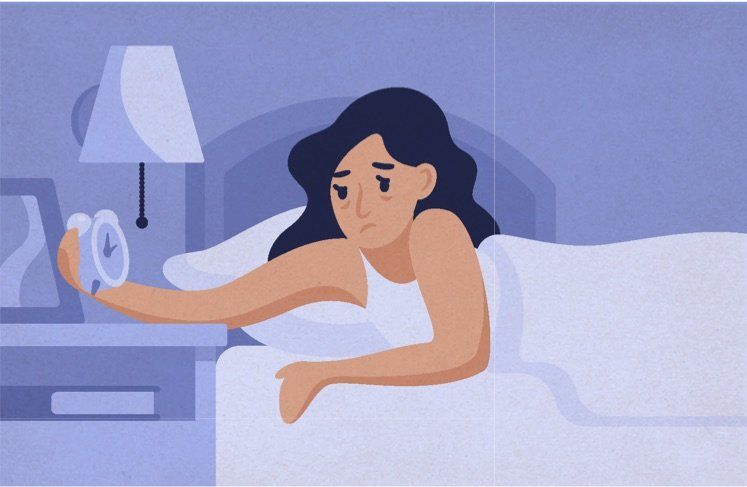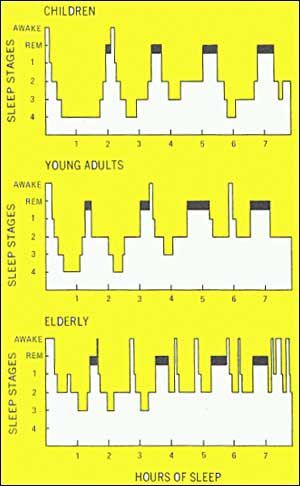Reducing Overnight Wakefulness

In the last blog we looked into the theory behind answering the question “Why do I always wake up at night?”. That post described how all humans sleep in a series of cycles throughout the night with short gaps of wakefulness in between. In this post we will look into how we can ensure that these gaps are as short and unnoticeable as possible so that we have the impression, at least, of having had a full, deep night’s sleep without interruption.
In my last blog post, I stated that although all humans sleep in exactly the same way with the same movement between light sleep, deep sleep and wakefulness, there can be a marked difference in how people perceive their sleep.
Individuals who rate themselves as “good” sleepers, tend to spend less time in the lighter levels of sleep (stages 1 and 2), do not return to full consciousness between sleep cycles and if they do, do not pay much attention to them, falling back into sleep quickly and easily. You will often find that these individuals have a high awakening threshold (they are not disturbed from sleep easily) and do not remember their dreams or believe that they do not dream at all. REM sleep is still taking place at the end of each sleep cycle but there has not been enough consciousness to move information about the dream into their memory.
Conversely, individuals who believe themselves to be “poor” sleepers who wake up often, tend to spend less time in the deeper levels of sleep (stages 3 and 4). Spending more time in the lighter levels of sleep increases your chances of being disturbed (or your awakening threshold) which can lighten your sleep level further or bring you back to full consciousness. Such disturbance can come from external sources, i.e. noise, movement of your bed partner, light levels etc, or from within, i.e. pain, intrusive thoughts, stress levels, hormones etc.
An individual’s perception of their sleep will often vary between “good” and “poor” from night to night, week to week, during episodes of stress and, as discussed in the last series of posts, across different age groups. There is not a single person who sleeps well every single night - we all experience some good and some not so good nights - and later in this post we will come back to how to minimise both the internal and external causes of sleep disturbance so that we can obtain the most consistent night available to us.
Firstly, however, it is important to understand that it is not the waking up overnight per se that causes us the problem with our sleep but the way that we react to these natural gaps between our sleep cycles.
If we accept short bursts of wakefulness as a normal part of our sleep pattern then, even if we are aware of them happening, they do not cause us any anxiety and we find that we can drift back into the next sleep cycle effortlessly. However, if we are of the opinion that these gaps in our sleep are evidence of us being “poor” sleepers or experiencing a “bad” night’s sleep then our response to them will not only be more negative but will also wake us up more, making it harder for us to drift back off and therefore creating a self-fulfilling prophecy.
To explain this further, imagine what usually happens when you find yourself awake in the middle of the night. The standard response is to roll over, check what time it is and then to do these three things in your mind….
- Start to panic that you will not be able to fall asleep again and that you will subsequently feel like rubbish the following day.
- Begin to get angry at yourself for being a “bad” sleeper or think that there is something wrong with you (especially if you wake up at the same time every night)
- Try too hard to fall back to sleep again
All three of these mental processes will cause you to wake up further and have more difficulty getting back to sleep. Add on top of that the brain’s natural reaction on waking to check in with your bladder and it is easy to see how very innocent periods of wakefulness can lead to extended periods of angst and insomnia.
Top Tip:
If you do find yourself awake during the night, try not to look at the clock as knowing what time it is will kickstart your brain and wake you up even further.
Apart from learning to chill out about waking up, what else can we do to ensure that we are not disturbed overnight. These strategies are what is commonly called “sleep hygiene”. They focus on helping you fall more rapidly into a deep level of sleep and stay there for as long as possible, minimising the chances of waking up from the lighter levels of sleep. These include:
- Having a strong circadian rhythm (sticking to a routine both day and night).
- Keeping your bedroom as quiet and as dark as possible.
- Sleeping in a room that is between 16 and 18 degrees centigrade.
- Sleeping without any residual caffeine, alcohol or nicotine in your system.
- Building up a good amount of sleep pressure (through time, mental and physical activity).
- Feeling safe and relaxed enough within your environment and with whatever is on your mind.
Adhering to strong sleep hygiene will not mean that you will not still wake up between the end of one sleep cycle and the start of the next, but it will help those gaps to be shorter and less intrusive.
Interesting Point:
If you find that you wake up at the same time every night you should congratulate yourself for sticking to a healthy bedtime routine. If we fall asleep at the same time every night it stands to reason that the gaps in our sleep cycles will also be at the same times.
As discussed in my blog posts relating to how sleep changes with age, it is worth noting that adults experience more and more fragmented sleep as we age. Our ability to enter into and stay in the deep levels of sleep gradually decreases after the age of 25 and so the amount of time that older adults spend awake overnight significantly increases. Below is a series of sleep graphs that illustrate the differences between the sleep cycles of different age groups. As you can see, the spikes in the graphs, where a return to full consciousness is achieved, become more frequent and potentially more obvious the older we get and the further through the night we go.
Hopefully this blog post has shown you that short periods of wakefulness overnight are a completely normal and natural part of the make up of our sleep. If, however, you are still bothered by them or you really cannot get back to sleep following one, please contact me for more information on how my sleep coaching programme could help you.
Additional Reading
Sleep cycles https://www.fromsoultosole.co.uk/sleep-cycles
Sleep pressure https://www.fromsoultosole.co.uk/sleep-pressure
How sleep varies with age https://www.fromsoultosole.co.uk/blog



